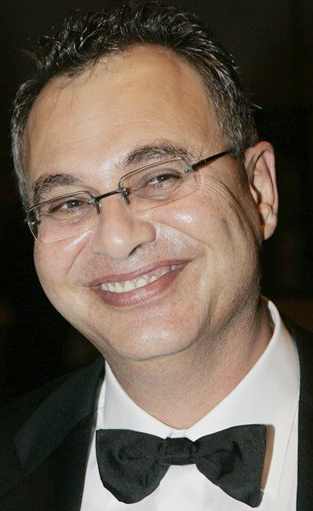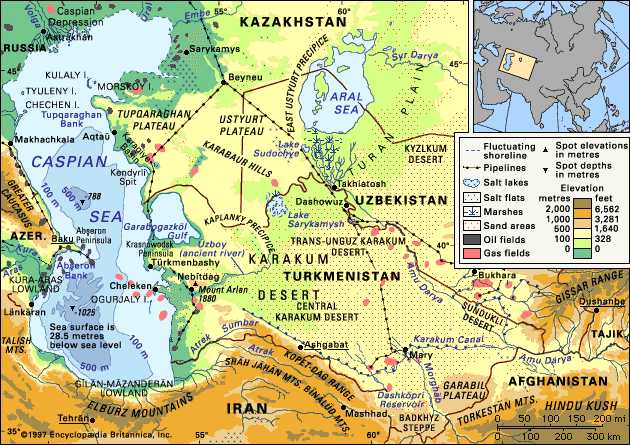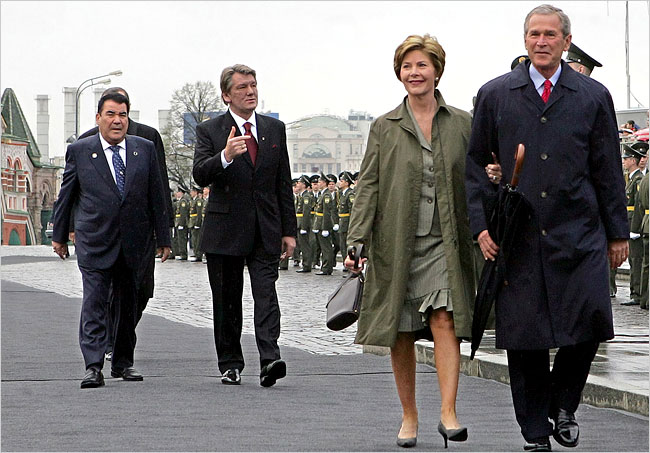Articles by Subject Middle East Crisis
Middle East Crisis

Five Dancing Israelis
28.06.2002
9-11 Mossad Agents Admit Mission:
"Our Purpose Was To Document The Event"
by Christopher Bollyn
Three of the five "dancing Israelis" appeared on an Israeli television show to explain that they were sent to document the event. See an excerpt of them:
ForBollynsSpeech11Nov2006_DancingIsraelis.wmv 2.4 mb

The
jubilant Israeli intelligence agents caught photographing the attacks
on the World Trade Center were allowed to return to Israel where they
divulged the purpose of their mission on a radio program: “Our purpose
was to document the event."

YaronShmuel.jpg

OdedEllner.jpg

OmerMarmari_or_Sivan_or_Paul_Kurzberg.jpg
The
explosive story of the 5 suspicious Israelis seen celebrating while
filming the attacks on the World Trade Center was first reported
nationally in American Free Press shortly after September 11. ABC News
recently reported on this story and added a comment that deserves
attention.
The
Forward, a respected Jewish newspaper in New York, reported that at
least two of the men were Israeli intelligence (Mossad) agents. The
Israeli agents were first seen filming the attack on the WTC while
kneeling on the roof of a white van in the parking lot of a New Jersey
apartment building across the river from lower Manhattan.
"They
seemed to be taking a movie," the resident who noticed them said. The
men were taking video or photos of themselves with the World Trade
Center burning in the background, she said. What struck her were the
expressions on the men's faces. "They were like happy, you know … They
didn't look shocked to me. I thought it was very strange," she said.
She
found the behavior so suspicious that she wrote down the license plate
number of the van and called the police. The FBI was soon on the scene
and a statewide bulletin was issued on the van.
The
van belonged to a Mossad front company called Urban Moving Systems.
Around 4 p.m. on Sept. 11, the van was pulled over, and five Israelis:
Sivan and Paul Kurzberg, Yaron Shmuel, Oded Ellner and Omer Marmari,
all between 22 and 27 years old, were arrested at gunpoint. One had
$4,700 in cash hidden in his sock while another carried two foreign
passports. Box cutters were found in the van.
"WE ARE NOT YOUR PROBLEM"
According
to the police report, one of the men said they had been on the West
Side Highway in Manhattan "during the incident" — referring to the
World Trade Center attack. Sivan Kurzberg, the driver, said, "We are
Israeli. We are not your problem. Your problems are our problems. The
Palestinians are the problem."
The
case was turned over to the FBI's Foreign Counterintelligence Section
because the FBI believed Urban Moving Systems was a “cover for an
Israeli intelligence operation,” ABC reported.
While
the FBI searched the company’s Weehawken, N.J., offices, removing boxes
of documents and a dozen computer hard drives, the owner of the
company, Dominic Suter, was allowed to flee the country. When FBI
agents tried to interview Suter a second time they discovered that he
had cleared out of his New Jersey home and fled to Israel.
When
ABC reporters visited Urban Moving Systems, “it looked as if it had
been shut down in a big hurry. Cell phones were lying around; office
phones were still connected; and the property of dozens of clients
remained in the warehouse.”
The
Israelis had been held at the Metropolitan Detention Center in
Brooklyn, for overstaying their tourist visas and working in the United
States illegally. Two weeks after their arrest, an immigration judge
ordered them to be deported, however, FBI and CIA officials in
Washington put a hold on the case, according to ABC.
The
five men were held in detention for more than two months. Some of them
were placed in solitary confinement for 40 days and given as many as
seven lie-detector tests. One of them, Paul Kurzberg, refused to take a
lie-detector test for 10 weeks and then failed it, according to his
lawyer.
"OUR PURPOSE WAS TO DOCUMENT THE EVENT"
A
deal was struck between Israeli and U.S. government officials after 71
days and the five Israelis were put on a plane, and deported to Israel.
The
detained Israelis discussed their experience in America on an Israeli
talk show after their return home. One of the men said: "The fact of
the matter is we are coming from a country that experiences terror
daily. Our purpose was to document the event."
See also:
More evidence on Five Dancing Israelis
http://www.whatreallyhappened.com/fiveisraelis.html
Israel Harbors Prime 9/11 Terror Suspect
by Christopher Bollyn
http://www.bollyn.com/index/?id=10559
Why was Kobi Alexander Allowed to Flee?
24.08.2006
The Israeli Fugitive, Odigo, and the Forewarning of 9/11

Photo:
Jacob "Kobi" Alexander, an Israeli military officer connected to the
Odigo instant messaging company whose employees and users received an
early warning of the 9/11 attacks, has recently become a fugitive from
U.S. justice and taken refuge in Israel along with other prime suspects
of the terror attacks.
The
case of the Israeli criminal Kobi Alexander is like the proverbial "tip
of the iceberg." While Alexander's crimes, through which he became
immensely wealthy, are now evident, they are but a very small piece of
a much larger Zionist criminal network – connected to the 9/11 terror
attacks – which remains hidden beneath the surface.
Alexander,
former head of the Israel-based Comverse Technology, was, until his
crimes were discovered, one of the highest paid executives in the
United States.
In
the year 2000, for example, he reportedly earned some $102.5 million,
with $93 million coming from the "exercise of options." We now know
that most of Alexander's money was made through the fraudulent
"exercise of options."
Comverse
Technology, the U.S.-based "parent company" of an older and much bigger
Israel-based company with the same name, is the owner of the Verint,
Ulticom, Starhome, Mercom and Startel companies. The key positions in
these companies are all held by Israeli nationals.
Alexander,
was recently allowed to flee the United States after he and two other
former Comverse executives were charged with securities, mail and wire
fraud by U.S. prosecutors in Brooklyn, New York. A warrant has been
issued for his arrest.
While
a spokesman for the U.S. Attorney's office for the Eastern District of
New York told AFP on August 15 that he "expected" that Alexander would
turn himself in, The New York Times was rather less optimistic. "It
will be a long time – if ever – before Alexander explains himself in a
courtroom," the Times wrote on August 21.
Alexander's
lawyer, Robert Morvillo, said he "believed" that Alexander and his
family were on vacation in Israel. Alexander, an Israeli citizen and a
former military officer, wired $57 million to an account in Israel at
the end of July and was evidently allowed to flee the United States.
"Given
Alexander's stature and military service," the Times reported, quoting
unnamed law professors, "Israel might be reluctant to readily hand him
over." One might reasonably ask, "What does the 54-year old Alexander's
"military service" have to do with Israel refusing to extradite him for
crimes committed in the United States?"
While
Alexander is obviously connected with Israel's military intelligence
apparatus and George Soros through the mutually owned investment fund
ComSor, what is not widely reported is his company's close links with
Odigo, the Israeli-run instant messaging company that received – and
conveyed – urgent warning messages about the imminent terror attacks on
the World Trade Center, several hours before the first plane hit.
The
New York Times certainly must be well aware of the personal and
business connection between Alexander and Odigo since they did an
extensive interview with Avner and Maskit Ronen, the founders of Odigo,
for their Sunday magazine in September 2000.
The
magazine article about the Ronen's, titled "Immigrants with an I.P.O."
could have been titled "Immigrants on a Mission." The Ronens, both with
military backgrounds in computer science, "put down few roots," during
their first years in New York City, the Times reported.
"They
made no friends outside the office and had no taste at all for
networking at Silicon Alley parties," the NYT Magazine wrote. "They
sought neither driver's licenses nor a local physician." The bizarre
photograph in the article showed two silhouetted figures hidden in the
dark. These were the Ronens, Israeli military officers on a mission in
New York.
ODIGO INSTANT MESSAGES
There
is ample evidence that many Israelis were forewarned of the attacks
through an Israeli instant messaging service called Odigo. This story,
which presents the clearest evidence of Israeli prior knowledge of the
attacks, was reported only very briefly in the U.S. media – and then
completely forgotten and deleted.
According
to the news reports, at least two Israel-based employees of Odigo
reported having received warnings of an imminent attack in New York
City hours before the first plane hit the WTC.
Odigo,
an Israeli-owned company had its U.S. headquarters only two blocks from
the World Trade Center, yet Odigo failed to pass the warning it had
received on to the authorities in New York, a move that would have
saved thousands of lives.
Two
weeks after 9-11, Alex Diamandis, Odigo's vice president, said, "The
messages said something big was going to happen in a certain amount of
time, and it did – almost to the minute."
"It
was possible that the attack warning was broadcast to other Odigo
members, but the company has not received reports of other recipients
of the message," Diamandis said.
Based
on the Israeli government figure that some 4,000 Israelis were expected
to be in the World Trade Center at the time of the attacks, it seems
evident that many Israeli Odigo users got the message.
Odigo,
which offers real-time messaging, has a feature called "People Finder"
which allows a user to send an instant message to a large group based
on a common characteristic, such as Israeli nationality. "People
Finder" allows Odigo users to search for online "buddies," with filters
like Israeli nationality, while maintaining user privacy at all times.
The
Internet address of the sender of the warning was reportedly given to
the FBI. Two months later it was reported that the FBI was still
investigating the matter. Since then there have been no further media
reports about the Odigo warning of 9/11.
As
AFP has previously reported, Odigo, like Comverse and other
Israel-based software companies, is really headquartered in Herzliya,
Israel, the suburb of Tel Aviv where Israeli military intelligence
headquarters are located.
Typically,
with these Israeli-intelligence linked outfits, the company's research
and development, and any manufacturing, such as the "black box"
computer surveillance equipment produced by Comverse, is all done in
Israel. The U.S. offices merely function as distribution, marketing,
and financial centers.
In
the case of Comverse, for example, the real parent company was
Alexander's Tel Aviv-based Efrat Future Technology Ltd., which carried
out "all research, development, and manufacturing," for Comverse,
according to a 1992 article in The Jerusalem Post.
Shortly
after 9-11, Odigo was completely taken over by Comverse Technology,
which had been part owner of Odigo since early 2000, if not earlier.
Shortly after 9/11, five executives from Comverse were reported to have
profited by more than $267 million from "insider trading."
Avner
Ronen, the "founder" of Odigo, was Vice President of Business
Development of Comverse Technology in October 2005. This indicates that
Ronen and Alexander, both Israeli military officers with computer
backgrounds, have been close business partners since early 2000.
"Comverse
and Odigo have had a long-standing partnership and together have
developed instant communications products and services that we have
recently begun to offer to operators around the world," Zeev Bregman,
CEO of the Israel-based Comverse Ltd., told The Jerusalem Post in May
2002.
The Great Game
14.10.2001
The War For Caspian Oil And Gas
By Christopher Bollyn
President
Bush's "crusade" against the Taliban of Afghanistan has more to do with
control of the immense oil and gas resources of the Caspian Basin than
it does with rooting out terrorism.

Once
again an American president from the Bush family is leading Americans
down an oil-rich Middle Eastern warpath against enemies of freedom and
democracy.
President
George W. Bush, whose family is well connected to oil and energy
companies, has called for an international crusade against Islamic
terrorists, who he says hate Americans simply because we are "the
brightest beacon of freedom."
The
focus on religion-based terrorism serves to conceal important aspects
of the Central Asian conflict. President Bush's noble rhetoric about
fighting for justice and democracy is masking a less noble struggle for
control of an estimated $5 trillion of oil and gas resources from the
Caspian Basin.
One
of the material results of the elder Bush's Desert Storm military
campaign in 1991 was to secure access to the huge Rumaila oil field of
southern Iraq, which was accomplished by expanding the boundaries of
Kuwait after the war. This allowed Kuwait, a former British
protectorate where American and British oil companies are heavily
invested, to double its prewar oil output.
The
Trepca mine complex in Kosovo, one of the richest mines of Europe, was
seized last year by George Soros and Bernard Kouchner, two Jewish
members of the New World Order gang who devastated Serbia.
A
similar geopolitical strategy, influenced by Zionist planners, to
control the valuable mineral resources of the Caspian Basin underlies
the planned aggression against Afghanistan, a Central Asian nation that
occupies a strategic position sandwiched between the Middle East,
Central Asia, and the Indian subcontinent.
Central
Asia has enormous quantities of undeveloped oil resources, including
some 6.6 trillion cubic meters of natural gas, waiting to be exploited.
The former Soviet republics of Uzbekistan and Turkmenistan are the two
major gas producers in Central Asia.
Today,
the only existing export routes from the area lead through Russia.
Investors in Caspian oil and gas are interested in building alternative
pipelines to Turkey and Europe, and especially to the rapidly growing
Asian markets.
India,
Iran, Russia, and Israel, are working on a plan to supply oil and gas
to south and southeast Asia through India but instability in
Afghanistan is posing a great threat to this effort.
Afghanistan
lies squarely between Turkmenistan, home to the world's third-largest
natural gas reserves, and the lucrative markets of the Indian
subcontinent, China and Japan. A memorandum of understanding has been
signed to build a 900-mile natural gas pipeline from Turkmenistan to
Pakistan via Afghanistan, but the ongoing civil war and absence of a
stable government in Afghanistan have prevented the project from going
forward.
Afghanistan
was at the center of the so-called "Great Game" in the 19th century
when Imperial Russia and the British Empire in India vied for
influence. Today, its geographical position as a potential transit
route for oil and natural gas pipelines, makes Afghanistan an extremely
important piece of a global strategy by energy magnates to obtain
control over these precious resources.
Enron,
a Texas-based gas and energy company, together with Amoco, British
Petroleum, Chevron, Exxon, Mobil and Unocal are all engaged in a
multi-billion dollar frenzy to extract the reserves of Azerbaijan,
Kazakhstan, and Turkmenistan, the three newly independent Soviet
republics that border on the Caspian Sea.
On
behalf of the oil companies, an array of former cabinet members from
the elder Bush administration have been actively involved in
negotiations with the former Soviet republics. The dealmakers include
James Baker, Brent Scowcroft, Dick Cheney, and John Sununu.
Turkmenistan
and Azerbijan are also both closely allied with Israeli commercial
interests and Israeli military intelligence. In Turkmenistan, a former
Israeli intelligence agent, Yosef A. Maiman, president of Merhav Group
of Israel, is the official negotiator and policy maker responsible for
developing the energy resources of Turkmenistan.
"This
is the Great Game all over," Maiman told The Wall Street Journal about
his role in furthering the "geopolitical goals of both the U.S. and
Israel in Central Asia. "We are doing what U.S. and Israeli policy
could not achieve," he said, "Controlling the transport route is
controlling the product."
"Those
that control the oil routes out of Central Asia will impact all future
direction and quantities of flow and the distribution of revenues from
new production," said energy expert James Dorian recently in Oil &
Gas Journal on September 10, 2001.
Foreign
business in Turkmenistan is dominated by Maiman's Merhav Group,
according to The Washington Report on Middle East Affairs (WRMEA).
Maiman, who was made a citizen of Turkmenistan by presidential decree,
serves as Turkmenistan's official negotiator for its gas pipeline,
special ambassador, and right-hand man for the authoritarian President
Saparmurad Atayevich Niyazov, a former Politburo member of the Central
Committee of the Communist Party of the Soviet Union.
The
Merhav Group of Israel officially represents the Turkmen government and
has brokered all of the energy projects in Turkmenistan, contracts
worth many billions of dollars.
Merhav
has been contracted to modernize existing natural gas infrastructure
and will build new facilities in an oil refinery in the city of
Turkmenbashi on the Caspian Sea. Merhav refuses to disclose its sources
of financing.
In
keeping with Israeli political interests, Maiman's planned pipelines
bypass Iran and Russia. Maiman has said that he would have no objection
to dealing with Iran, "when and if Israeli policy allows it."
Iran
has accused the U.S. of trying to keep regional pipelines from passing
through Iran. Creating a counterbalance to Iran's regional influence
was a cornerstone of the Clinton administration, which was concerned
that Iran could gain too much control over Caspian exports.
"This
is a common interest for the U.S. and Israel," said Dr. Nimrod Novik,
vice president of Merhav, "The primary interest is to prevent the
development of Turkish strategic dependence on Iran, given the unique
emerging strategic relationship between Turkey and Israel."
Russia
and Turkmenistan are in a battle to conquer the Turkish gas market, the
supplier that offers the best price for its gas will emerge as the
winner. "This is a great race," Maiman says, "Whoever takes Turkey
first wins. Whoever comes second will have lean years."
Although
the U.S. needs Russian assistance in its campaign against Afghanistan,
when AFP asked Alex Chorine of Caspian Investor what kind of
relationship existed between the Russian and Western/Israeli energy
companies doing business in the Caspian Basin, Chorine said, "They act
as enemies."
One
of Maiman's proposed pipelines would bring Turkmenistan's gas and oil
to Turkey via Azerbaijan and Georgia. Maiman's Merhav Group is also
involved in a $100 million project that would reduce the flow of water
to Iraq by diverting water from the Tigris and Euphrates rivers to
southeastern Turkey.
Israeli
officials boast of having excellent relations with Azerbaijan, where an
Israeli company, Magal Security Systems, has a contract to provide
security at Baku airport. Magal is one of several Israeli companies
that will turn Israel into a major player in Azerbaijan by providing
security for the 1,200 mile pipeline taking oil from the Caspian to the
Turkish port of Ceyhan on the Mediterranean Sea.
Enron,
the biggest contributor to the Bush campaign of 2000, conducted the
feasibility study for a $2.5 billion Trans-Caspian gas pipeline, which
is being built under a joint venture agreement signed in February 1999
between Turkmenistan and two American companies, Bechtel and General
Electric Capital Services. Maiman acted as the intermediary between the
Turkmenis and the U.S. firms, but won't discuss his cut or whether he
will receive a stake in the pipeline.
The
Merhav Group has hired a Washington lobbying firm, Cassidy &
Associates, and spent several million dollars to encourage U.S.
officials to push for the Trans-Caspian pipeline. During the Clinton
administration, Secretary of Energy Bill Richardson and special adviser
to the president, Richard Morningstar promoted the Baku-Ceyhan
pipeline, calling it "critical to the economic survival of
Turkmenistan."
The
relationship between Israel, Turkey, and the U.S. is the major factor
for the selection of the Baku-Ceyhan route, which could be extended to
bring oil directly to energy deficient Israel, however, energy experts
question the wisdom and cost of this route. Companies are under
pressure from the U.S. and Israel to invest in east-west pipelines,
although most companies would prefer cheaper north-south pipelines
through Iran, according to WRMEA.
The
U.S. firm Unocal was leading a pipeline project to bring Turkmenistan's
abundant natural gas through Afghanistan to the growing markets of
Pakistan and India, until the turmoil in Afghanistan led them to
withdraw from the project in 1998. The planned pipeline would carry gas
from the Turkmen Dauletabad fields, among the world's largest, to
Multan in Pakistan, with a planned extension to India. The line from
Dauletabad through Afghanistan is planned to transport 15 billion cubic
feet of gas per year for 30 years. This pipeline is on hold until the
political and military situations in Afghanistan improve.
There
is a second Unocal project to build a 1,030 mile oil pipeline called
the Central Asian Oil Pipeline Project, which would start at Chardzhou
in Turkmenistan linking Russia's Siberian oil field pipelines to
Pakistan's Arabian coast. This line could transport 1 million barrels a
day of oil from other areas of the Former Soviet Union. It would run
parallel to the gas line route through Afghanistan and branch off in
Pakistan to the Indian Ocean terminal in Ras Malan.
ISRAEL'S SOVIET DICTATORS IN CENTRAL ASIA
Niyazov,
the authoritarian president of the Turkmen Soviet Socialist Republic
was elected in 1990, and remained in power when Turkmenistan declared
independence in October 1991. In May 1992, Niyazov oversaw the passage
of a new constitution giving the president extraordinary powers.
Under
the new constitution, the president is head of government as well as
head of state, and can appoint a prime minister at any time. The
president can also appoint and remove all judges.
Niyazov's
leadership became increasingly authoritarian during the 1990s. In
September 1993 he defended his policy of tight censorship of the press
as a prerequisite for stability and peace in the country. In a
referendum held in January 1994, nearly 100 percent of the voters
endorsed Niyazov's leadership, allowing him to extend his presidency
until 2002.
Niyazov
renamed himself Turkmenbashi (father of the Turkmen) and presents
himself as a prophet and messiah. Every morning, state radio and
television (no independent broadcasters exist) transmit the words of a
prayer that includes an oath of allegiance to the president along with
the traditional appeal to Allah.
Like
Turkmenistan, the other Central Asian nations of Uzbekistan, Kazakstan,
Kyrgyzstan, and Tajikistan are all ruled by former Communists who came
to power under the Soviet system. All five have been re-elected to
their posts without opposition, garnering over 90 percent of the votes
and securing comfortable lives in the national palaces.
In
each of the Central Asian countries a strange and officially imposed
dichotomy between "official" and "unofficial" Islam has appeared.
Official Islam refers to religious institutions under the control of
the state authorities. Unofficial Islam includes all other Muslims,
especially those who believe that Islam cannot be controlled by the
state power. They are accused of being extremists.
The
strength of Islamic fundamentalist movements like the Taliban in
Afghanistan and the anti-Russian Chechen rebels threatens the Soviet
style dictatorships and their control of the region's immense mineral
wealth.
FOCUS ON AFGHANISTAN
Before
the sun had set on the apocalyptic day that New York's gleaming twin
towers collapsed, the U.S. government had already determined to affix
the blame for the kamikaze attacks on the World Trade Center and the
Pentagon on Osama bin Laden, the Saudi-born guerilla leader, and the
Taliban government of Afghanistan which harbored him.
Although
the U.S. government did not present its evidence in support of its case
against bin Laden, Secretary of State Colin Powell said on September
23, "I think in the near future, we will be able to put out a paper, a
document, that will describe quite clearly the evidence that we have
linking him to this attack."
When
it was reported that the Taliban might turn bin Laden over to face
justice, the Bush administration said that surrendering bin Laden would
not prevent an American-led attack on Afghanistan.
An
international plan to remove the fundamentalist Islamic Taliban from
power has been a subject of international diplomatic discussions for
months and was reportedly raised by India during the Group of Eight
summit in July in Genoa, Italy.
The
Indian press reported in June 2001 that, "India and Iran will
facilitate, U.S. and Russian plans for limited military action, against
the Taliban if the contemplated tough new economic sanctions don't bend
Afghanistan's fundamentalist regime."
The
invasion plans described in the Indian press in June may come to pass
in October: Tajikistan and Uzbekistan will lead the ground attack with
a strong military back up of the U.S. and Russia. Vital Taliban
installations and military assets will be targeted.
The
economic reasons for the multi-national assault against the Taliban
were explained: Uzbekistan, Tajikistan, Kazakhstan, and Turkmenistan
are threatened by the Taliban that is aiming to control their vast oil,
gas, and other resources by bringing Islamic fundamentalists into
power.
What
was not explained in the Indian press is how these four predominantly
Islamic Central Asian nations would be threatened by having Islamic
fundamentalists in power.
See also:
European Spooks Say Mideast Terrorists Needed State Support
By Christopher Bollyn
16 December 2001
European
intelligence experts dismiss the Bush “war on terrorism” as deception
and reveal the realpolitik behind the bombing of Afghanistan. Read on:
http://www.bollyn.com/index/?id=10595

Photo:
In May 2005, President Bush and Laura Bush joined President Saparmurat
A. Niyazov of Turkmenistan and the Ukrainian president, Viktor A.
Yushchenko, to mark a World War II anniversary in Moscow.
It
should be remembered that Niyazov was a totalitarian dictator "for
life" not unlike Stalin. Bush did not seem to mind marching alongside a
dictator like Niyazov in 2005 as American boys died for "democracy" in
Iraq and Afghanistan. This photo reveals just how shallow and false
that claim really is.
What matters most to Bush and his cronies is control of Central Asia and its mineral assets.
Niyazov's
death may have been natural or caused by poison or doctoring. What
matters most is what comes next. Turkmenistan is a neighbor to
Afghanistan and has a long border on Iran's northeastern frontier.
This is key. The border of Turkmenistan is very close to Tehran.
The
Israelis have long played a key role in Turkmenistan and their strategy
has been to find ways to export the immense oil and gas reserves of
Turkmenistan to the West without passing through Russia or Iran.